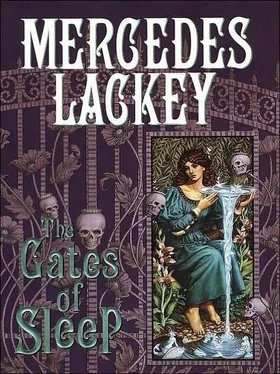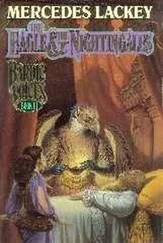Not that this land needed any cleansing.
Unbidden, the answer to that thought came immediately.
Yet.
For there was a girl poisoned, polluted, lying sick in a room not a quarter mile from here, representative of how many others? And worse, of how much poison pouring into the air, the water, and the soil? And where was that blight? It couldn’t be far; if Ellen was a charity patient, the relative who had brought her to Andrew Pike must be poor as well, and unable to afford an extended journey. Would it spread? How could it not? Disease, cancer, poison—all of them spread, inexorably; it was in their nature to spread. Some day, the poison would touch this place.
She clenched her jaw, angry at her aunt, at all of the shortsighted fools who couldn’t see, wouldn’t see, that what poisoned the land came, eventually, to poison them. What was wrong with them? Did they think, in their arrogance, that their money would keep them isolated from the filth they poured out every day? Was their greed such that the cost didn’t matter so long as it was hidden? Or were they willfully not believing, pretending that the poison was somehow harmless, or even beneficial? She’d seen for herself how some people had eagerly bought the copper-tailings from the mines and the smelters to spread on their garden paths because what was left in the processed ore was so poisonous that no weed could grow in it. It never occurred to them that the same gravel was poisonous enough to kill birds that picked bits of it up—or babies that stuck pieces of it in their mouths to suck. Willful ignorance, or just stupidity? In the end, it didn’t matter, for the damage was done.
But it wasn’t difficult to keep land and water and air clean! Any housewife knew that—if you just took proper care—and took it all the time.
But the people responsible for Ellen’s condition didn’t care for the wisdom of the housewife; that much was clear enough. Theirs was the wisdom of the accounting book, the figures on the proper side of the ledger, and never mind a cost that could not be reckoned in pounds and pence.
For a moment, her heart sank, but her resolve strengthened. I will do what I can, she vowed silently, though to what, she wasn’t sure. I will do all that I can. Because I must.
If anything answered, there were no dramatic signs, yet she felt as if something had heard her vow, found it good, and accepted it. And she turned her horse’s head away, down the hill, and toward Briareley, determined to begin that endless task with one single girl.
There was no stableman at Briareley, no servant arrived to hold her horse and take it away when she rode up the drive toward the imposing front entrance—Georgian, she thought, with four huge columns holding up the porch roof—at the top of a long staircase of native stone made smooth as marble. A Georgian front, Tudor wings? and heaven only knew what else behind them. And no servants for all of this pile.
This, however, was not unexpected; from Sally, she had heard that the doctor cut as many corners as possible, and keeping a stablehand about just to care for a horse and two ponies was a great waste of wages when a man-of-all-work was what was really needed. So Marina sat up in her saddle and looked carefully at the drive; saw the wheel-ruts leading off to the side of the house, and followed them. As she expected, they led her to a wide doorway into a square courtyard open to the sky. Along two sides were stalls for horses, along two were bays for carriages and other vehicles. There was, thank heavens, a mounting-block in the center.
She made use of it, then led the horse to an unoccupied stall. It was also utterly bare; she couldn’t do much about the lack of straw on the ground, but she did take off his bridle, throw a blanket over him, and leave him a bucket of water. He’d had his breakfast before she rode out, and if Dr. Pike was as careful with money as he seemed to be, she didn’t want to pilfer oats or hay without permission.
She considered going around to the kitchen entrance—but this was a formal visit, after all, and she wasn’t an expected and casual arrival. So, patting her hat to make sure it was still on straight, she walked back around to the front.
She felt very small as she trudged up the staircase, wondering what long-ago ancestor of the original owners had deemed it necessary to cow his guests before they entered his home. Someone with a profound sense of his own importance, she reckoned. Compared with this place, Oakhurst, which had seemed so huge when she first arrived, was nothing.
When he gets staff for this hulk, and has it full of patients, he’ll bowl over people who come to see if this is where loony Uncle Terrance should be put.
It was a pity that a place like this, absolutely overflowing with history, should have to be made into a sanitarium. But what else was to be done with it? Let it molder until the roof fell in? Turn it into a school? Who else would want it? People like Arachne, with new money out of their factories, built brand new mansions with modern conveniences, and didn’t care a tot about history. There were only so many American millionaires about, and most of them wanted fancy homes near London, not out in the farmlands of Devon. What was the point (they thought) of having money enough to buy a huge old castle if there was nobody around to see it and admire it?
Except, of course, the local villagers, who had seen it all their lives.
And what was the point of living out where there was nothing to see and do? Nothing, as American millionaires saw it. They loved London, London sights, excitement, theater, society.
It came as no surprise to her that there was no one in the entrance hall, although there was a single desk set up facing the doors there. The enormous room, with magnificent gilded and painted plaster-molding, cream and olive and pale green, ornamenting the walls and ceiling. She paused to listen, head tilted to one side, and followed the echoing sounds of soft voices along the right side of the building.
I thought this place was supposed to be in poor repair? That was the first thing she noticed; none of the signs of neglect that she had expected, no stains on walls or ceilings betraying leaks, no cracks, no rot or woodworm. In fact, although gilt was rubbed or flaked off from plasterwork here and there, and paint and wallpaper fading, the building appeared to be sound.
She walked quietly—she’d had practice by now—but her footsteps still echoed in the empty rooms. Not even a scrap of carpet to soften the wooden floors!
Perhaps the financing of repair work is where all the Doctor’s money is going. If that was so, she was inclined to feel more charitable, it would take a great deal of society money to pay for repairs to a place like this one.
And it appeared that the huge rooms here had been made into wards. As she entered the third, this one featuring painted panels of mythological scenes up near the ceiling, she found people there. A modern cast-iron stove with a fireguard about it had been fitted into the fireplace, rendering it safer and a great deal more efficient at producing heat, and two folk who were not in their beds dozing sat in a pair out of the motley assortment of chairs around it. There were roughly a dozen beds, three occupied, and one brisk-looking young woman in a nurse’s cap and apron and light blue smock who seemed to be in charge of them; when she saw Marina, she nodded, and walked toward her.
“I beg your pardon, miss,” the nurse said, as soon as she was near enough to speak and be heard, “But the old family no longer owns this home. This is Briareley Sanitarium now, and we do not give house tours, nor entertain visitors, except for the visitors to the patients.”
Читать дальше












